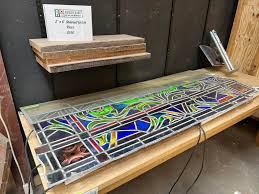
There’s a curious truth in parish life — the people who think they are running the place seldom are, and the people who think they have nothing to offer often carry the quiet wisdom that keeps the whole thing from toppling over like a badly stacked tower of hymnbooks.
St. Paul, in one of his more pastoral flourishes, lays it out beautifully in 1 Corinthians 12. The Body of Christ, he says, is not a well-oiled spiritual machine with interchangeable parts. It is an organism, prone to aches, occasional inflammation, and moments when the left hand does something so baffling the right hand wants to file a formal complaint. And yet — and here’s the marvel — the parts we are tempted to call “weaker” or “less honourable” are the very ones God clothes in glory.
Paul insists the broken become indispensable.
It’s almost as though the Holy Spirit has a soft spot for people who don’t fit the mould — the ones who arrive late, speak plainly, ask awkward questions at Bible study, or sit in the back pew because they’re not sure if they even belong. They’re not the church’s “problems.” They’re often its prophets.
I’ve seen it again and again.
The man living with addiction who knows more about daily grace than many a tidy theologian.
The survivor of trauma who teaches the rest of us what patient courage looks like.
The elder with shaking hands whose prayers still shake the heavens.
The teen who doesn’t say much but sees everything.
These are the spiritual ligaments — often strained, sometimes overlooked — that hold the Body together. They remind us that ministry isn’t a performance for the polished but a shared pilgrimage of the needy. The church’s true vitality isn’t found in our efficiency, our programs, or even our carefully colour-coded diocesan charts (which, let’s be honest, only three people ever read). It’s found in our interdependence.
Paul’s point is not that the strong must gently accommodate the weak, like a potluck where we grudgingly include a gluten-free casserole. No — he flips the whole thing on its head. The so-called “weaker” members reveal what the gospel actually looks like lived out: grace received, grace shared, grace needed again tomorrow.
Perhaps the most countercultural thing the church can do today is admit that we need one another — all of us, in our tattered beauty and our inconvenient complications. The broken do not burden the Body; they reveal its heart.
And maybe that’s why, on any given Sunday, the Spirit seems happiest sitting beside the one who limped into the nave wondering if God still sees them. Because if Paul is right — and he usually is — the Body becomes most itself when the parts that tremble are honoured, included, and loved without hesitation.
In other words: if your faith life feels a bit wobbly, congratulations. You might just be holding the rest of us up.
A Companion Prayer
Holy One,
You gather us not because we are strong,
but because we are Yours.
You knit together the broken pieces of our lives
until they shine with a beauty we could never make alone.
Teach us to honour the members of Your Body
whom the world overlooks.
Give us eyes to see wisdom in wounded places,
courage in trembling hands,
and Your grace alive in those who walk with a limp.
Where we are tempted to prize polish over perseverance,
correct us gently.
Where we imagine we can manage on our own,
remind us that You made us for dependence —
on You, and on one another.
Gather the discouraged, the weary, the uncertain,
and let them know they belong.
Make our parish a place where every member
— struggling or steady —
is held in love, honoured in dignity,
and welcomed without condition.
Shape us, broken as we are,
into the Body of Christ
for the healing of the world.
Amen.